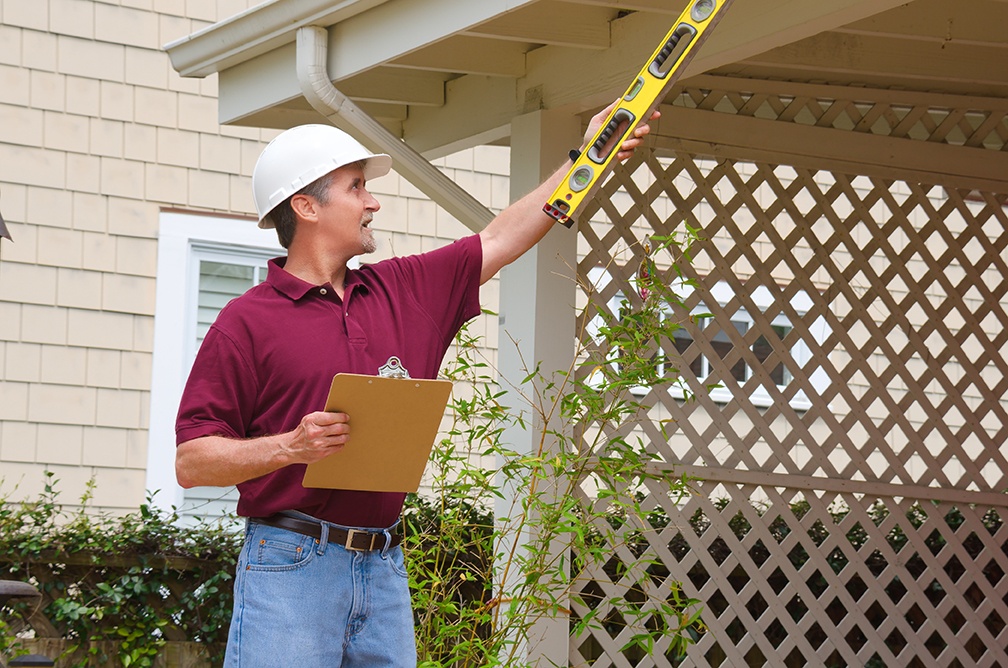 Whether you are renovating an older home or putting the finishing touches on a new one, you would be amiss if you did not consider how to include furniture and other items made of wood. With a diverse range of colors and textures, wooden features are a must-have for any modern home design. Let’s take a look at three ways that you can use wood to add a little spice to your home decor.
Whether you are renovating an older home or putting the finishing touches on a new one, you would be amiss if you did not consider how to include furniture and other items made of wood. With a diverse range of colors and textures, wooden features are a must-have for any modern home design. Let’s take a look at three ways that you can use wood to add a little spice to your home decor.
Try A Visually Striking Wood Wall
If you are looking to add some ‘pop’ to a room, consider an offset or patterned wall made of wood. Your options are limitless when it comes to adding wood to a wall. Consider horizontal slats with a lighter wood like pine for a warm, modern feel. Alternatively, try a flat wall made of hardwood boards of a darker color than the room’s paint.
Go Rustic With A Farmhouse Dining Table
Does your dining room feel a little boring with your standard table and chairs? A rustic farmhouse dining table is an excellent way to breathe some life into your dining area. In addition, hardwood tables like these are sturdy and can suffer a lot of punishment. They are the perfect choice for families that are used to hosting large dinners or having company over.
If you are so inclined, you can build a table like this in just a few hours. Search around online for plans and head down to your local hardware store to get things started.
Reclaim And Refinish For Timeless Beauty
Finally, give some thought as to how you can use reclaimed wood in your home. Consider replacing tile or linoleum with a some “rip and refinish” hardwood flooring reclaimed from another house. Or if you would rather have wooden furniture, you can get chairs or side tables that are made of reclaimed wood. If you are located near the coast or beach, look around for large pieces of driftwood that can be turned into furniture by a local tradesman.
While we cannot help you choose your wooden furnishings, we can help you find the best new home to put them in. When you’re ready to buy or sell your home, contact your local professional real estate agent.
 Are you in the market for a new house or condo in 2018? With the new year just around the corner, now is the time to get all of your financial details in order. As you may know, buying a home is a significant financial transaction. But it all starts with your down payment, which is the lump sum that you invest in order to purchase the home. In today’s blog post we will share a few sources of funds that you can tap into for help saving up your down payment.
Are you in the market for a new house or condo in 2018? With the new year just around the corner, now is the time to get all of your financial details in order. As you may know, buying a home is a significant financial transaction. But it all starts with your down payment, which is the lump sum that you invest in order to purchase the home. In today’s blog post we will share a few sources of funds that you can tap into for help saving up your down payment. Last week’s economic news included remarks by Fed Chair Janet Yellen about the diversity of opinions in the Federal Open Market Committee, readings on inflation, and the National Association of Home Builders Housing Market Index. The Commerce Department issued reports on housing starts and building permits issued; Freddie Mac and the Commerce Department issued weekly readings on mortgage rates and new jobless claims.
Last week’s economic news included remarks by Fed Chair Janet Yellen about the diversity of opinions in the Federal Open Market Committee, readings on inflation, and the National Association of Home Builders Housing Market Index. The Commerce Department issued reports on housing starts and building permits issued; Freddie Mac and the Commerce Department issued weekly readings on mortgage rates and new jobless claims. Have you been dreaming about a larger, roomier or more luxurious living space? Or perhaps just want to experience the joy of owning your own home and building your net worth instead of renting? Let’s explore a few questions that can help to answer whether or not you’re ready for a new lifestyle as a homeowner.
Have you been dreaming about a larger, roomier or more luxurious living space? Or perhaps just want to experience the joy of owning your own home and building your net worth instead of renting? Let’s explore a few questions that can help to answer whether or not you’re ready for a new lifestyle as a homeowner. Is it time to upgrade or move on to a new home? If you are planning on listing your home for sale in the near future, you will have a few key considerations to make. Do we paint? Finish the basement into a suite? Renovate the bathroom, or leave it?
Is it time to upgrade or move on to a new home? If you are planning on listing your home for sale in the near future, you will have a few key considerations to make. Do we paint? Finish the basement into a suite? Renovate the bathroom, or leave it? Are you thinking about selling your home? If this is your first time going through the selling process, you may be wondering just how well things are going to go. Selling a home is usually a smooth process – there are thousands sold each day – but issues can arise if you’re not careful. Let’s explore four mistakes that are commonly made by first-time home sellers and how you can avoid them.
Are you thinking about selling your home? If this is your first time going through the selling process, you may be wondering just how well things are going to go. Selling a home is usually a smooth process – there are thousands sold each day – but issues can arise if you’re not careful. Let’s explore four mistakes that are commonly made by first-time home sellers and how you can avoid them. Ask any experienced homeowner and you’ll learn that buying in a ‘hot’ real estate market can be challenging. A high supply of buyers competing for a low stock of available homes is a combination that can lead to bidding wars, price inflation, and other headaches. The good news: with some careful preparation and the right mindset, a bidding war is one that you can win. Read on to learn how you can beat out other bidders by making an irresistible offer.
Ask any experienced homeowner and you’ll learn that buying in a ‘hot’ real estate market can be challenging. A high supply of buyers competing for a low stock of available homes is a combination that can lead to bidding wars, price inflation, and other headaches. The good news: with some careful preparation and the right mindset, a bidding war is one that you can win. Read on to learn how you can beat out other bidders by making an irresistible offer. Last week’s economic news included a survey of senior loan officers, Freddie Mac’s average mortgage rates, and new jobless claims. An index reading for consumer sentiment was also reported.
Last week’s economic news included a survey of senior loan officers, Freddie Mac’s average mortgage rates, and new jobless claims. An index reading for consumer sentiment was also reported. Are you thinking about selling your house? Before you decide to list your home up for sale, it is helpful to get a clear picture of how much it’s going to cost. Whether you are sprucing things up with a fresh coat of paint, replacing the roof membrane or just covering your taxes, there will be a few bills to pay. Let’s take a quick look at some of the true costs that you’ll incur when selling your home.
Are you thinking about selling your house? Before you decide to list your home up for sale, it is helpful to get a clear picture of how much it’s going to cost. Whether you are sprucing things up with a fresh coat of paint, replacing the roof membrane or just covering your taxes, there will be a few bills to pay. Let’s take a quick look at some of the true costs that you’ll incur when selling your home. Do you remember the first time you shopped for or purchased a home? If so, think back to that moment. What did you first notice? Do you remember certain aspects of the home’s appearance, or perhaps some unique landscape feature? Was it the bright color of the freshly-painted door or the glossy sheen from the clean windows?
Do you remember the first time you shopped for or purchased a home? If so, think back to that moment. What did you first notice? Do you remember certain aspects of the home’s appearance, or perhaps some unique landscape feature? Was it the bright color of the freshly-painted door or the glossy sheen from the clean windows?